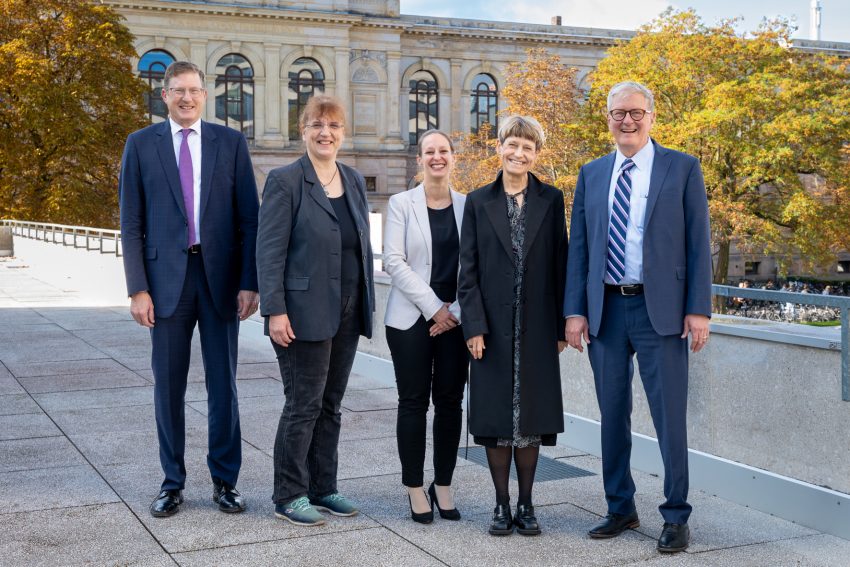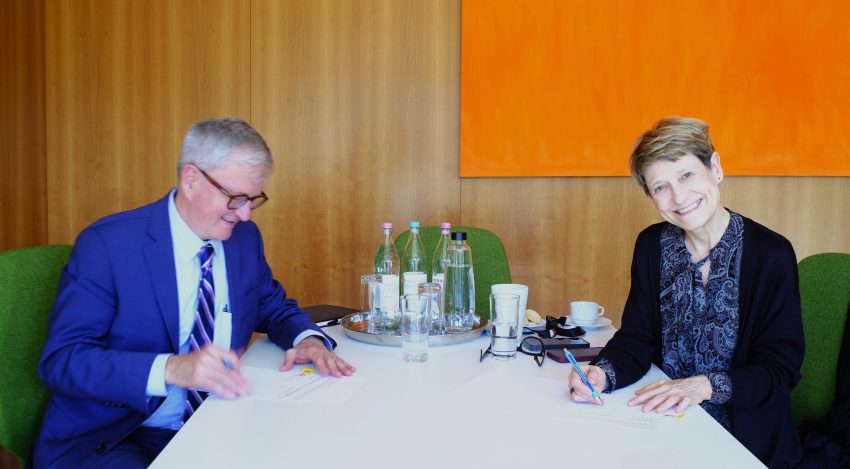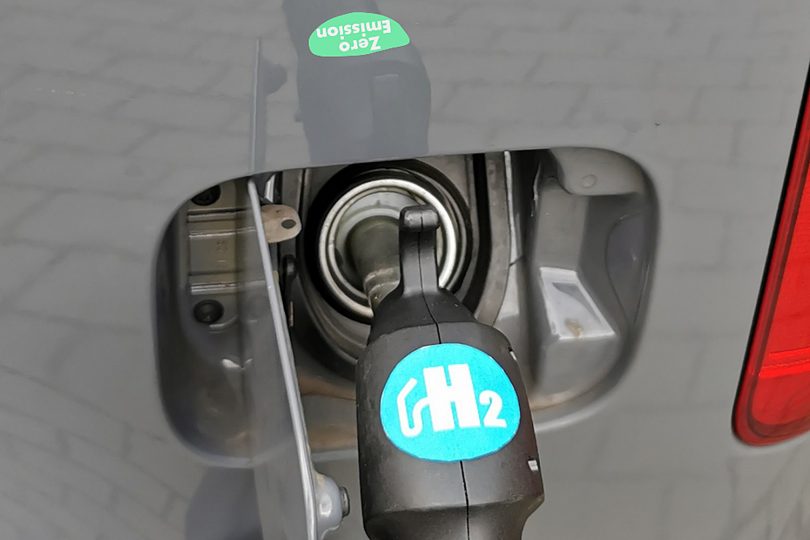Expanding cooperation in the field of battery and hydrogen technologies TU Braunschweig and Western University deepen cooperation
Technische Universität Braunschweig and Western University in London, Ontario (Canada), are about to significantly expand their collaboration in the field of battery and hydrogen technologies. The Institute for Particle Technology (iPAT) at TU Braunschweig and Western University have been working closely together for several years, and this successful partnership is now set to be formalised and expanded through a cooperation agreement. Plans include a student exchange programme between the two universities.

(From right to left): Dr Alan Shepard (Western University); Prof. Dr Angela Ittel, Prof. Dr Sabrina Zellmer and Dr Ute Kopka (all Technical University of Braunschweig); Dr David Muir (Western University). Photo credit: Fraunhofer IST/Daniel Böhme
This week, Prof. Sabrina Zellmer from the Institute of Particle Technology invited Dr David Muir, Vice President for Innovation and Strategy, and Dr Alan Shepard, President of Western University, to visit TU Braunschweig and the Fraunhofer Institute for Surface and Thin Film Technology. This visit marks an important milestone in the collaboration. A cooperation agreement, signed by TU President Prof. Angela Ittel, lays the foundation for expanded cooperation between the two universities, as well as with industry and the Fraunhofer Institute for Surface Engineering and Thin Films (IST).

TU President Prof. Angela Ittel and Dr Alan Shepard, President of Western University, sign the cooperation agreement. Photo credit: Ute Kopka/TU Braunschweig
“The planned intensification of cooperation between TU Braunschweig and Western University promises significant advances in battery research and development. By exchanging knowledge and resources, and by promoting the mobility of our respective university members and students, both institutions will be able to expand their research and teaching capacities significantly, and develop innovative solutions for the energy transition. Trust-based transnational cooperation is an enormously important part of our internationalisation, especially given the geopolitical challenges we are currently facing,” said TU Braunschweig President Prof. Angela Ittel upon signing of the cooperation agreement.
Research priorities and joint projects
Both universities are key players in the field of battery and hydrogen technologies.
“Through close cooperation, we are strengthening our research activities and creating synergies in the field of battery and hydrogen technologies. The aim is to promote not only scientific collaboration, but also international knowledge transfer and the training of the next generation of specialists for the energy transition through cooperation and student mobility. This will benefit our Bachelor’s degree programme in Battery and Hydrogen Technology, as well as the new consecutive, internationally oriented Master’s degree programme in Battery and Hydrogen Technology,” said Prof. Sabrina Zellmer.
Cooperation with Fraunhofer IST and Wasserstoff Campus Salzgitter e.V.
Cooperation with Western University is a perfect fit for the existing battery and hydrogen research ecosystem at TU Braunschweig. In close collaboration with the Battery LabFactory (BLB), the Fraunhofer Institute for Surface Engineering and Thin Films (IST), and Wasserstoff Campus Salzgitter e.V., various issues relating to the production, characterisation, and recycling of batteries and fuel cells are being investigated. Additionally, the evaluation of the hydrogen value chain and its use in various applications is being researched.
Further collaborations with Western University
In addition to battery and hydrogen technologies, TU Braunschweig collaborates with Western University in other areas. Professors Karsten Hiller and Thekla Cordes, from the Institute of Biochemistry, Biotechnology and Bioinformatics, have maintained close ties with Western University for several decades in some cases. Several visiting professors and doctoral students from Western University have already spent time conducting research at the Braunschweig Centre for Systems Biology (BRICS) in recent years.

